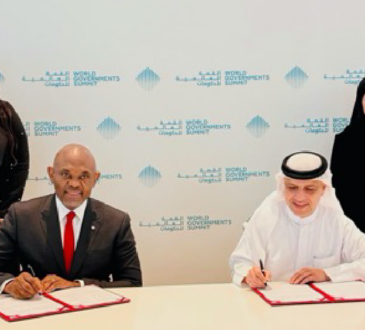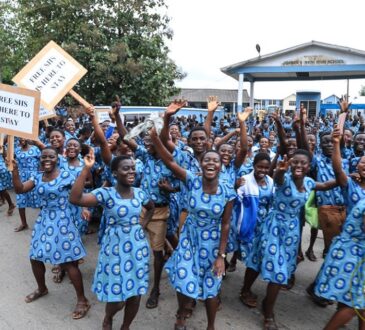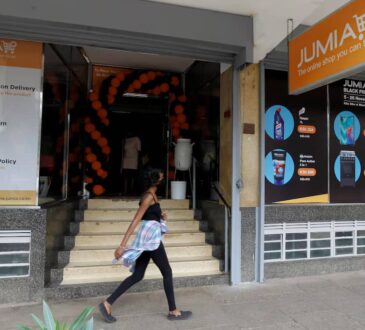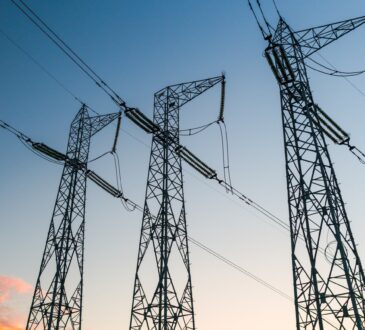Accelerate building a China-Africa community with a shared future in new era
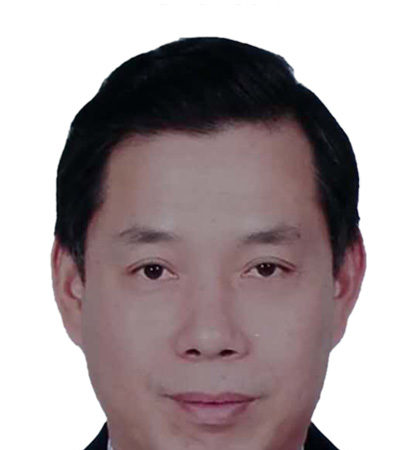
By H.E. LU Kun, Chinese Ambassador to Ghana
In November, 2021, the Eighth Forum on China-Africa Cooperation (FOCAC) Ministerial Conference was successfully convened in Dakar, Senegal. The Conference adopted four outcome documents including the Dakar Declaration. Chinese President Xi Jinping announced the launch of nine programs for China-Africa cooperation. Since the Conference, despite the evolving international situation, China and Africa have stayed our course in enhancing solidarity and focusing on cooperation. We have made good progress in implementing the outcomes of the conference, bringing real benefits to the people in Africa.
On August 18, 2022, the Coordinators’ Meeting on the Implementation of the Follow-up Actions of the Eighth Ministerial Conference of the FOCAC was successfully held via video link. The Meeting reached a three-point consensus: First, both sides are committed to accelerating the building of a China-Africa community with a shared future in the new era. Second, both sides are committed to strengthening solidarity and cooperation among developing countries. Third, both sides are committed to constantly boosting the well-established credentials of FOCAC.
China and Africa Enjoy Time-honoured Friendship
China is the largest developing country, while Africa is the continent with the largest number of developing countries. Developing solidarity and cooperation with African countries has been the cornerstone of China’s foreign policy, as well as a firm and longstanding strategy. Since the fight for national liberation and independence, China and African countries have always supported each other and pursued common development, forging unbreakable fraternity. Shared past experiences and similar aims and goals have brought China and Africa close together. China and Africa will always be a community of shared future.
China-Africa relationship is at its historical best. 52 African countries and the African Union Commission have signed cooperation documents with China on the Belt and Road Initiative (BRI). In the Dakar Declaration, African countries welcomed and supported the Global Development Initiative proposed by President Xi Jinping, becoming the first continent to do so. In May 2021, China and Africa together launched the Initiative on Partnership for Africa’s Development, to pool resources in those areas where Africa’s most urgent needs lie, promote consensus among the international community and provide greater impetus to Africa’s development.
Standing at a new historical starting point, China will continue to follow the principles of sincerity, real results, amity and good faith and pursuing the greater good and shared interests, put forth by President Xi Jinping. China will always be Africa’s partner of mutual respect, equality and sincere cooperation. We will firmly support African countries in pursuing your own development paths and seeking strength through unity. China supports the AU in joining the G20 and supports Uganda in hosting a successful high-level meeting of the Non-Aligned Movement. We will work with Africa to carry forward the Five Principles of Peaceful Co-existence, practice true multilateralism and jointly safeguard the legitimate rights and interests of developing countries.
China Provide Sincere and Generous Assistance to Africa
China-Africa cooperation is about mutual support between developing countries. Over the years, China has formed a distinctive approach to win-win cooperation with Africa. China’s approach involves upholding four principles: Upholding sincerity, friendship and equality, Upholding shared interests and the greater good, with greater emphasis on the latter, Upholding a people-oriented approach in pursuing practical cooperation with efficiency, Upholding openness and inclusiveness. There are five lines that China will not cross: no interference in African countries’ choice of a development path that fits their national conditions; no interference in African countries’ internal affairs; no imposition of its will on African countries; no attachment of political strings to assistance to Africa; and no pursuit of selfish political gains through investment and financing cooperation with Africa.
Foreign aid from 2013 to 2018 totaled RMB270 billion. Of this sum, 45 percent went to African countries in the form of grants, interest-free loans and concessional loans. From 2000 to 2020, China helped African countries build more than 13,000 km of roads and railway and more than 80 large-scale power facilities, and funded over 130 medical facilities, 45 sports venues and over 170 schools. It also trained more than 160,000 personnel for Africa, and built a series of flagship projects including the AU Conference Center.
China has sent a total of 23,000 medical team members to 48 African countries, who have treated 230 million patients. Since the outbreak of COVID-19 pandemic, China has sent medical teams to 17 African countries and provided 189 million doses of vaccines to 27 African countries. Joint production of vaccines in Africa now has an annual capacity of about 400 million doses. The Africa CDC Headquarters building has topped out and is expected to be completed early next year.
This year, China have provided emergency food assistance to Djibouti, Ethiopia, Somalia, and Eritrea. On 8th July at the G20 Foreign Ministers’ meeting, State Councilor and Foreign Minister Wang Yi put forward China’s initiative on international food security cooperation. The Chinese government has decided to provide, within this year, a new tranche of food assistance to the 17 African countries in need, and will encourage more Chinese firms to invest in agricultural production and processing in Africa to help realize food self-sufficiency.
China-Africa Cooperation Boosts Africa Economic Growth
China remains Africa’s largest trading partner for 13 consecutive years In 2021, the bilateral trade volume reached $254.3 billion, up 35.3% year-on-year and hitting a record high. Among them, imports from Africa reached $105.9 billion, up 43.7% year on year. During the first half of 2022, China-Africa trade reached $137.38 billion, up 16.6% year on year. In the first seven months of this year, China imported $70.6 billion of goods from Africa, and Chinese enterprises invested $2.17 billion in Africa. In the past five years, China’s agricultural imports from Africa have grown at an average rate of 11.4% annually, and bilateral trade in services has created nearly 400,000 jobs for Africa every year. By the end of 2020, Chinese companies had invested more than $43 billion in Africa, covering highway, electricity, telecommunications and port projects etc. Chinese investment has brought opportunities, capital and employment, enhancing Africa’s capacity for self-driven development and improving the livelihoods of the local people.
China has never pursued a trade surplus with Africa and has adopted various measures to increase imports from Africa. We has offered zero-tariff treatment of 97% of taxable products from 33 least-developed countries (LDCs) in Africa. We are pushing for “green lanes” for African agricultural exports to China in a bid to reach $300 billion in total imports from Africa in the next three years. So far this year, China has signed exchange of letters with 12 African countries on zero tariff for 98 percent of their export items to China. We will waive the 23 interest-free loans for 17 African countries that had matured by the end of 2021. China will continue to actively support and participate in the construction of major infrastructure in Africa through financing, investment and assistance. We will also continue to increase imports from Africa, support the greater development of Africa’s agricultural and manufacturing sectors, and expand cooperation in emerging industries such as the digital economy, health, green and low-carbon sectors.
China welcomes continued interest in and support for Africa from the international community. We would also like to, with the consent of our African brothers, carry out trilateral or multi-party cooperation in Africa. What Africa wishes for is a favorable and amicable cooperation environment, not the zero-sum Cold War mentality. What Africa would welcome is mutually beneficial cooperation for the greater well-being of the people, not major-country rivalry for geopolitical gains.
China’s Financing Builds Africa’s Capacity to Grow
China has always respected the wishes of the African people. Our financing to Africa mainly focuses on infrastructure and manufacturing-related sectors to meet the region’s real needs. To date, Chinese companies have helped African countries build and upgrade over 10,000 kilometers of railway, around 100,000 kilometers of highway, 1,000 Bridges, 100 ports, and many large-scale power plants, hospitals and schools. Such financing support has boosted economic growth, inreased tax revenues, created jobs and improved people’s lives, bringing tangible benefits to the African people.
In terms of financing cooperation with Africa, China is a latecomer, but China-Africa financing cooperation has provided Africa with new options to break the bottleneck of insufficient funds for development. According to the World Bank’s 2022 statistics, 28.8% of Africa’s external debt comes from multilateral financial institutions and 41.8% from commercial creditors. Together they accounted for more than 70%. Western investors are the largest creditors of Africa. Chinese debt only takes up 17% of Africa’s total external debt. Labeling China as the main creditor of Africa is clearly an overstatement. Chinese debt to Africa are mostly productive and sustainable “good debt” rather than consumptive or unsustainable “bad debt”. The so-called “Chinese debt trap” is actually a “poverty trap”, a piece of disinformation conjured up by some western countries to block African development, undermine African countries’ right to independently choose their development partners and hold back Africa’s industrialization and efforts toward economic independence. What they want is to plunge the continent into a trap of underdevelopment and continue to make it a provider of low-cost resources.
In its financing cooperation with Africa, China always acts on the principles of equality, openness and transparency and respects the sovereignty and domestic legal procedures of African countries. China has never attached any political strings to debt agreements, never forced any African country to take out loans, and never pressed for any debt service by any African country. Under China-Africa financing cooperation, not a single African country has been forced to mortgage its ports, mines or other strategic resources to China. Still less, not a single African country slid into debt predicaments just because it has financing cooperation with China.
China supports the effort to reduce the debt burden on African countries, and is fully implementing the G20 DSSI: it has put off more debts than any other G20 member, signed debt agreement or reached common understanding on debt relief with 19 African countries. China is making steady progress in implementing all the pledges it made in Dakar. Over 3 billion has been delivered out of the 10 billion US dollars of credit facilities pledged to African financial institutions, and nearly 2.5 billion US dollars of loans were channeled to Africa’s priority programs. More than 2 billion of the 10 billion US dollars of trade finance has been allocated. We are prepared to, through the IMF’s two Trusts, re-channel 10 billion US dollars of its SDR to Africa, and encourage the IMF to direct China’s contributions to Africa.
China Supports Africa in realizing Sustainable Development
China pursues green, low-carbon and sustainable development in its cooperation with Africa, never at the expense of Africa’s ecosystem or long-term interests. Both sides are expanding cooperation on environmental protection, climate change and green development. All FOCAC meetings have issued cooperation plans for ecological and environmental protection, which have been effectively implemented. The two sides have expanded cooperation on clean energy including solar and wind power, and successfully held a workshop on building the Great Green Wall of Africa. China firmly opposes all forms of illegal fishing, illegal mining or illegal logging. Chinese companies strictly abide by relevant laws and have made important contributions to Africa’s economic and social development.
Profound Traditional Friendship and Fruitful Practical Cooperation
China is Ghana’s largest trading partner and major source of investment. The bilateral trade volume always remains among the top in Africa. In 2021, bilateral trade reached $9.572 billion, up 12.2% year on year. China’s direct investment increased by $57.27 million. So far, Chinese companies have completed a series of key projects, including the Tema Port expansion project, the Western Corridor Gas Infrastructure Development Project and BUI Hydroelectric Power project, bringing tangible benefits to the Ghanaian people. At present, the China-aided Jamestown Fishing Port, Phase II of the University of Health and Allied Sciences Project, Polytechnics, Technical and Vocational Training Centers Upgrading Project, and the Annex building of the Ministry of Foreign Affairs and Regional Integration are well underway. Under the Master Project Support Agreement between the Government of Ghana and the Sinohydro Corporation, Tamale Interchange and Upgrading of Selected Feeder Roads in Ashanti and Western Regions have been commissioned. Takoradi Interchange has completed 35%, Sunyani Inner City Roads have completed 65%, other projects are well on their way.
Later this year, the Communist Party of China will hold its 20th National Congress, thus ushering in a new journey of building a modern socialist country in all respects. This year also marks the 20th anniversary of the founding of the African Union. At this new historical starting point, China and Africa need to stand even closer with each other, press ahead toward common development and rejuvenation, and truly build a China-Africa community with a shared future in the new era.




